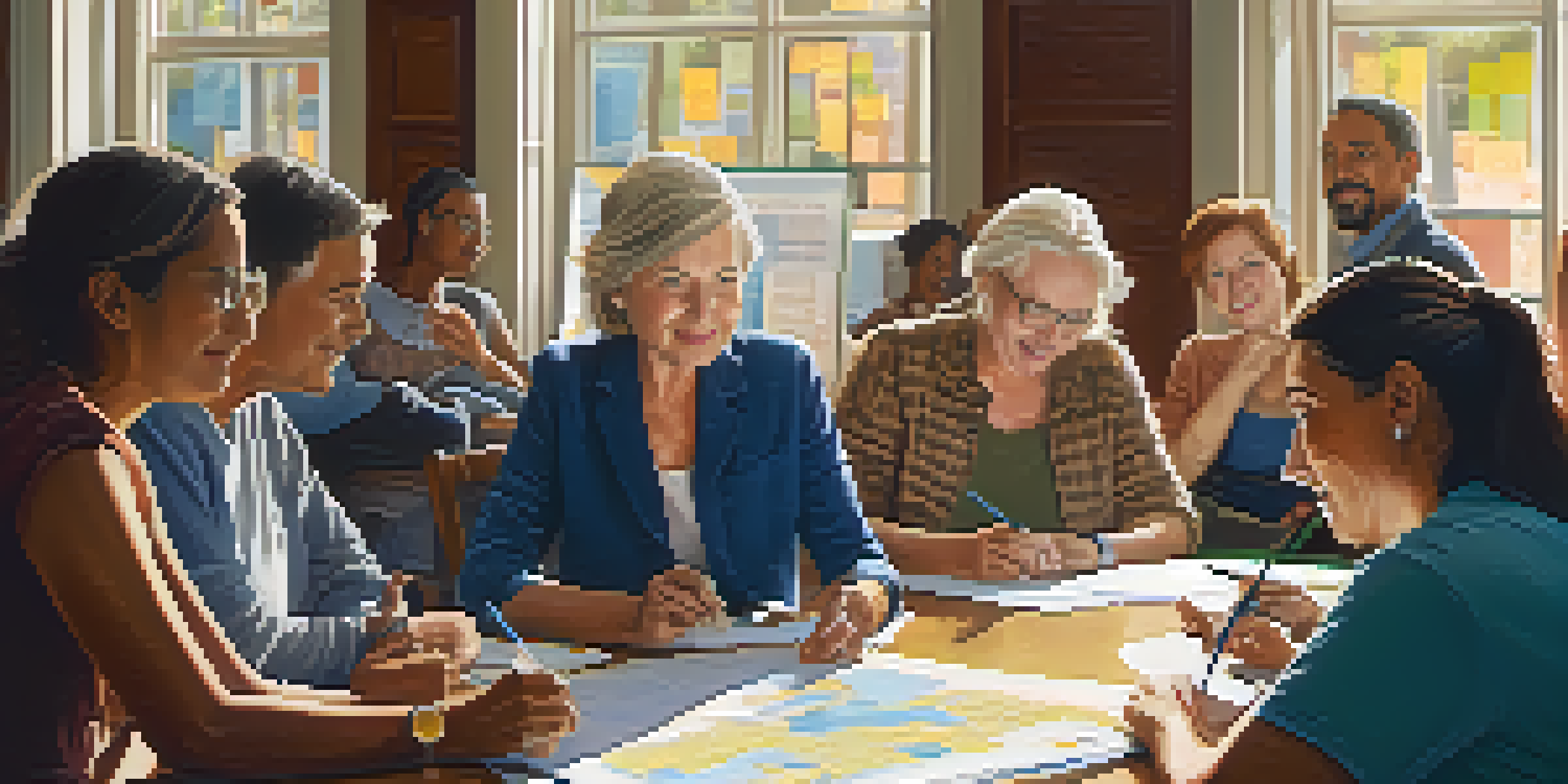Understanding Local Elections: Your Role as a Voter

Why Local Elections Matter for Your Community
Local elections might not get as much attention as national ones, but they play a crucial role in shaping your community. Decisions made at the local level affect your daily life, from the quality of schools to public transportation. When you vote in local elections, you're directly influencing the policies that impact your neighborhood.
The foundation of our democracy is the right to vote, and that right is a powerful tool for change.
Consider this: a local mayor can implement programs that improve public safety or enhance community services. These officials have the power to make decisions that resonate more intimately with your everyday experiences. By participating in local elections, you're not just casting a vote; you're voicing your concerns and hopes for your community's future.
Moreover, local elections often have a higher impact on your immediate environment than federal elections. When you engage in these elections, you help to foster a sense of community ownership and responsibility. Every vote counts and can lead to significant changes that benefit everyone.
Understanding Local Offices and Their Functions
Local elections typically involve various offices, including mayors, city council members, school board members, and even judges. Each of these positions plays a distinct role in managing local governance and resources. For instance, school board members directly influence educational policies, affecting the quality of education your children receive.

When you understand the responsibilities of these offices, you can make more informed decisions at the polls. Researching candidates and their platforms gives you insight into how they plan to tackle local issues. This knowledge empowers you to choose leaders who align with your values and vision for your community.
Local Elections Shape Communities
Voting in local elections directly influences policies that affect your neighborhood and daily life.
Additionally, local offices often have a more immediate impact on your life compared to state or federal positions. The person elected as your city council member might decide on local zoning laws or budget allocations that affect your neighborhood directly. It’s essential to recognize the importance of these roles and the power they hold.
The Voting Process for Local Elections
Participating in local elections starts with understanding the voting process. First, make sure you are registered to vote, as local election dates can differ from federal ones. Many states offer convenient online registration, but it's always a good idea to check your local election office for specific guidelines.
Voting is not only our right—it is our power.
Once registered, familiarize yourself with the voting methods available in your area. Some locales offer early voting, mail-in ballots, or traditional in-person voting on Election Day. Knowing your options can help you plan ahead and ensure that you make your voice heard.
Don’t forget to research the candidates and issues on your ballot before you cast your vote. Many local elections feature propositions or measures that can significantly impact your community, so being informed is critical. Take the time to understand what’s at stake and how your vote can influence the outcome.
How to Research Candidates and Issues
Researching candidates and local issues might sound daunting, but it doesn't have to be. Start by visiting official campaign websites and local news outlets to gather information on the candidates' platforms and backgrounds. This helps you understand their positions and how they align with your values.
Additionally, local forums and community events can be a goldmine for information. Attend town hall meetings or candidate debates to hear directly from those running for office. Engaging in these conversations allows you to ask questions and clarify any doubts you may have.
Understand Local Office Roles
Knowing the functions of local offices helps you make informed decisions about candidates and their impact on your community.
Don’t overlook nonpartisan resources that summarize candidates’ positions and ballot measures. Websites like Ballotpedia or local voter guides can provide unbiased information to help you make an educated decision. Empowering yourself with knowledge is key to participating actively in local elections.
The Importance of Voter Turnout
Voter turnout is a vital aspect of any election, particularly local ones, where every vote matters immensely. When more people participate, it reflects a community's engagement and concern for local issues. High turnout rates can lead to changes that align more closely with the public's needs and desires.
Conversely, low voter turnout can result in a small group of individuals making decisions for the larger population. This often leads to policies that may not represent the interests of everyone in the community. By voting, you ensure that your voice and the voices of others are included in the democratic process.
Encourage friends and family to join you in voting, as collective participation can create a ripple effect. The more individuals who commit to voting, the more representation and accountability there will be from elected officials. Your vote can inspire others to take action and contribute to a healthier democracy.
Engaging Beyond the Ballot Box
Voting is just one part of being an engaged citizen; involvement should extend beyond the ballot box. Attend local government meetings, join community organizations, or volunteer for causes you care about. These activities can help you stay informed about local issues and foster connections with others who share your interests.
Consider advocating for issues that matter to you by contacting your elected officials. Write letters or emails expressing your concerns or support for specific policies. When officials hear from their constituents, it reinforces the importance of representing the community’s interests.
Engagement Beyond Voting is Key
Active participation in community activities and discussions fosters a culture of civic engagement and strengthens local governance.
Furthermore, engaging with your community can inspire others to participate as well. Share your experiences and encourage friends to get involved. Building a culture of civic engagement helps create a stronger, more responsive local government.
Your Role as an Informed Voter
As a voter, you play a critical role in shaping your community and influencing local governance. Staying informed about local issues and candidates empowers you to make choices that reflect your values. Your vote is your voice, and it's essential to use it wisely.
Engaging with local issues doesn’t just happen during election season. Make it a habit to follow local news, attend community meetings, and discuss concerns with neighbors. By staying engaged, you'll be better prepared to make informed decisions when it’s time to vote.

Remember, every vote matters, and your participation can lead to meaningful change. By embracing your role as an informed voter, you're not just fulfilling a civic duty; you're actively contributing to the health and future of your community.